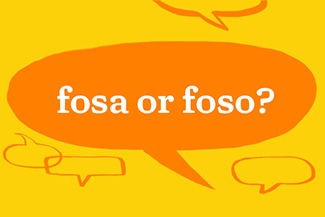This week’s word of the week is confianza.
Confianza is a noun that means confidence or trust and you can find out how to pronounce it here:
function playAudio(url) { new Audio(url).play(); }One of the meanings of confianza is confidence, in a variety of contexts:
Ese abogado tuyo no me inspira confianza. That lawyer of yours doesn’t exactly fill me with confidence.
Ganarse la confianza de alguien means to win somebody’s confidence, as in:
Necesitamos policías honrados que sepan ganarse la confianza y el respeto de la gente. We need honest police officers who know how to win people’s confidence and respect.
And to say you have confidence in something, you use the equivalent structure to English:
Tengo mucha confianza en el futuro. I have a lot of confidence in the future.
Confianza also often means trust:
Han puesto toda su confianza en él. They’ve put all their trust in him.
Entre amigos debe haber confianza. There needs to be trust between friends.
Existe una relación de confianza entre todo el equipo. There is a relationship of trust among the whole team.
From this notion of trust, comes the idea of intimacy and friendship, especially in the phrase de confianza:
Es de confianza, puedes hablar delante de él. He’s a friend, you can talk freely in his presence.
Come back next week for a new word, and expand your Spanish vocabulary!



